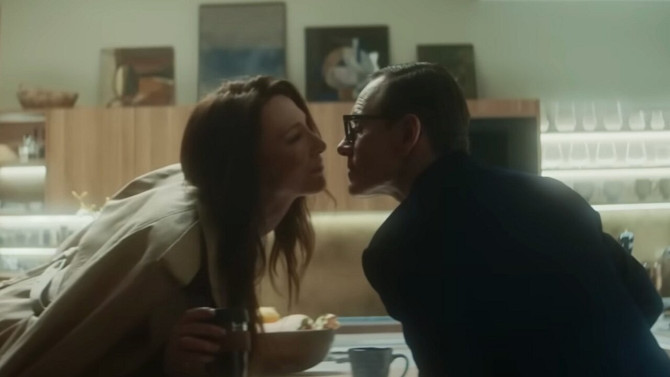
An Attaché Case
In 2025, dare I say that it’s nice to be highlighting a film made for mature audiences. Avoiding the pratfalls of sequels, remakes, comic book movies, and overly costly bombast, Black Bag, written by David Koepp (Mission: Impossible) and directed by Steven Soderbergh (Traffic), is most easily described as an old school spycraft feature. Opening with an extended tracking shot of spy George Woodhouse (Michael Fassbender) making his way through a happening nightclub in London, his contact soon informs him that there is a rat leaking some sort of tech software named Severus from within the agency. If there is one thing Woodhouse despises, it’s a liar, so he invites all of the suspects to a dinner party to try to get to the bottom of it.
-
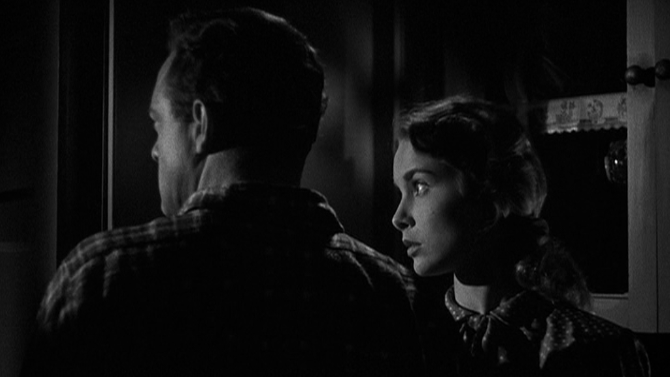
Post-War Noir
Act of ViolenceNovember 9, 2018A perfect example of ‘you can’t outrun your past, present or future’, 1949's Act of Violence, directed by Fred Zinnemann (High Noon; From Here to Eternity), starts with quite the hook: a man, limp noticeable, hurriedly, and with purpose, makes his way through a city in the clutches of the glum night, eventually entering a room that holds a deadly object – a gun. . . hopping onto a bus, it does not bode well. With a deliberate, unyielding presence, Joe Parkson (Robert Ryan – for another one of his great film noirs, see The Set-Up) is the thing of nightmares. . . a stalking figure in trench coat and fedora – the Michael Myers of the noir genre. Ryan, with his lined face, imposing size, and disturbed demeanor, is an ominous heavy – the enigmatic grunt opening a phone book and circling the name of one Frank R. Enley (Van Heflin).
-
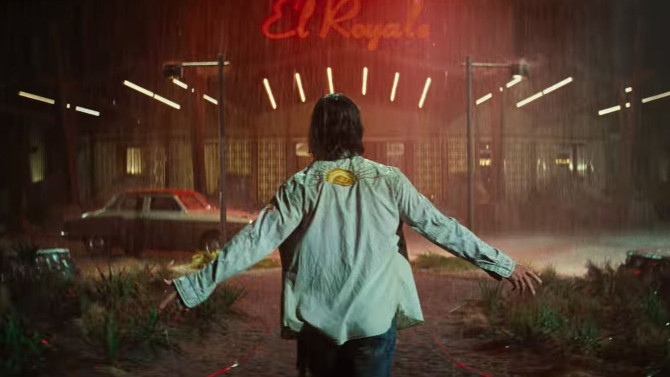
Royale Rumble
Bad Times at the El RoyaleOctober 16, 2018Twenty-first century film studios have a very strict checklist as to which movies they produce. Sequels, spinoffs, crude comedies, reasonably priced horror flicks, animated fare, name/brand recognition, award hopefuls. . . all of this meaning that very few adventurous, risky projects get made anymore. Gone are the days (for the most part), when adult oriented features like Basic Instinct and Body Double graced the silver screen, or edgier family films such as Adventures in Babysitting, The Neverending Story, and Home Alone were made – whether you love them or hate them, they did not fit your prototypical mould. So, when a 2018 motion picture that is so far outside of the stratosphere gets a thirty-two million dollar budget (thank you 20th Century Fox – which may soon be snapped up by Disney. . . a worrisome acquisition for moviegoers, as the bloated studio already owns Lucasfilm, Marvel, The Muppets Studio, and Pixar), it is an exciting day for cinephiles and adventurous moviegoers. So, welcome to the El Royale. Bad Times at the El Royale is an R rated gem written and directed by Drew Goddard (co-scribe and director of Cabin in the Woods; adaptor for the screen of The Martian), the type of dynamic thriller that resembles a sharp British crime flick (one where we do not expect everyone to survive). As twisted as it is twisty, Goddard designs the most fascinating of settings (its own character). . . a neon-glowing, mid century modern gambling den of a motel, hidden on the outskirts of Reno, a building that straddles the Nevada/California border (and has one of those tacky red lines that indicates the boundary between states).
-
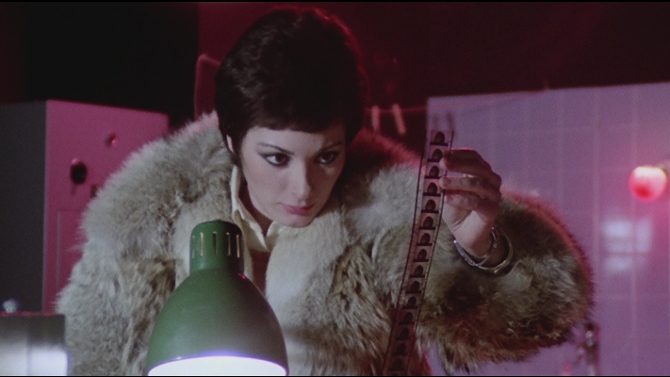
Strike a Pose
Strip Nude for Your KillerSeptember 2, 2018Pushing the boundaries of the Italian giallo, Andrea Bianchi’s aptly titled Strip Nude for Your Killer (1975), which features numerous examples of the seductive art of striptease, oodles of nudity, and a violently high body count, is an example of Eurotrash in its most disturbingly alluring state. . . not for the prudish or weak of heart, but fascinating to be sure. A glossy B movie set in the posh world of a Milanese modelling agency, one of the house’s top photographers, Carlo (Nino Castelnuovo), uses his advantageous position to pull stunning women into his bed (I use this term loosely – a steamy sauna works just as well for the cheeky fellow) with promises that they will grace the cover of the world’s most iconic fashion magazines.
-
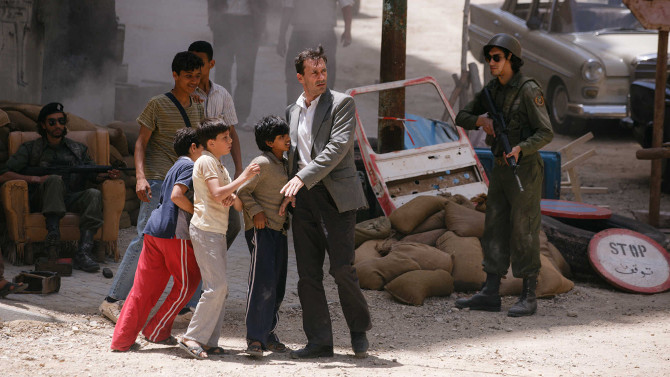
Middle East Muddle
BeirutAugust 13, 2018Ah, vacation time. Nothing like getting that call out of the blue – excited to be invited on a golf trip, to be asked to go down south (avoiding the winter blues), or to fly over to Europe. . . alas, this is not the case in today’s feature. Our protagonist, negotiator/arbitrator Mason Skiles (Jon Hamm), is strong-armed into taking a flight over to Beirut (a place he has vowed never to return to again – and also the title of the film) to give a so-called “academic lecture” – as we all know, this supposed job is simply cover for something decidedly more shady. Scribed by Bourne franchise writer Tony Gilroy (his previous effort to this, Rogue One: A Star Wars Story) and directed by Brad Anderson (Transsiberian), the pair actually open the film in Beirut (1972) ten years prior to when our story takes place, a glimpse into the man’s past in the city. Flash forward a decade and Skiles is a shell of the man he once was – a disjointed alcoholic living a fugue state instead of a life.
-
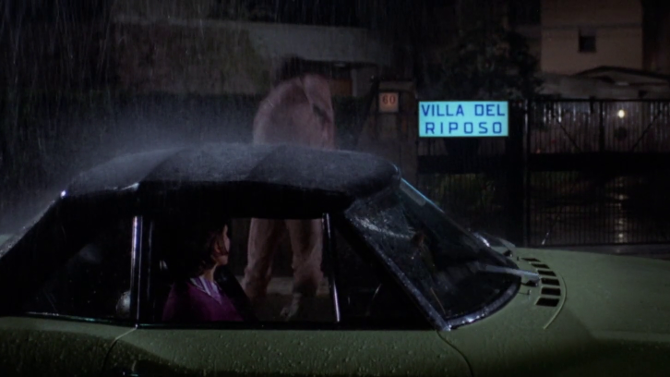
Morbid Orchids
Seven Blood-Stained OrchidsAugust 5, 2018With a title like Seven Blood-Stained Orchids, you’d probably expect a fascinating nature documentary divulging the secrets of a rare flower. . . but of course not, this is part of the continuing series of giallo films reviewed here on Filmizon.com. Written and directed by Umberto Lenzi (and loosely based upon Cornell Woolrich’s novel “Rendezvous in Black”), the filmmaker immerses the viewer into a sordid tale of bloody revenge. A murderer, dressed (and gloved) in black, is dispensing of women in and around the city of Rome.
-
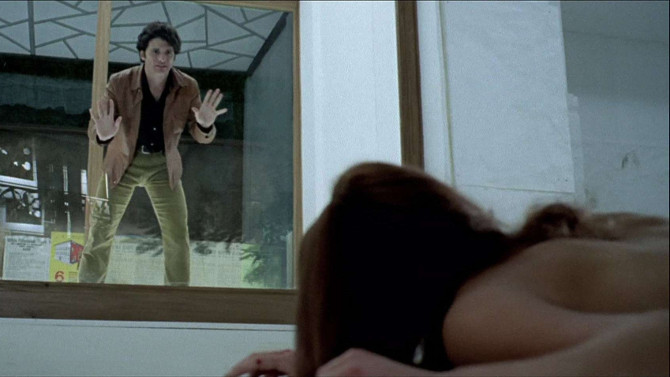
Super Dario
The Bird with the Crystal PlumageJune 12, 2018Picture this – a stunning modernist gallery catches the eye of a passerby late one night, not because of its striking white floors and walls that are the backdrop for noteworthy pieces of art, but rather, because it is the scene of a brutal attack. . . a woman being knifed by a man dressed in a dark raincoat, fedora and gloves, her panicked look and seeping blood in stark contrast to the pale decor. Attempting to rescue her, he gets stuck between two hard-wired glass door panels – this is the hook for the benchmark 1970 giallo The Bird with the Crystal Plumage, written and directed by Dario Argento. The man is Sam Dalmas (Tony Musante), a struggling author from the United States. Coming off of a bender, it is this disturbing sight that enlivens his senses, a chivalric jolt of adrenaline. Though he cannot rescue the girl directly, he is able to sound the alarm, flagging a late-night walker who calls the police.
